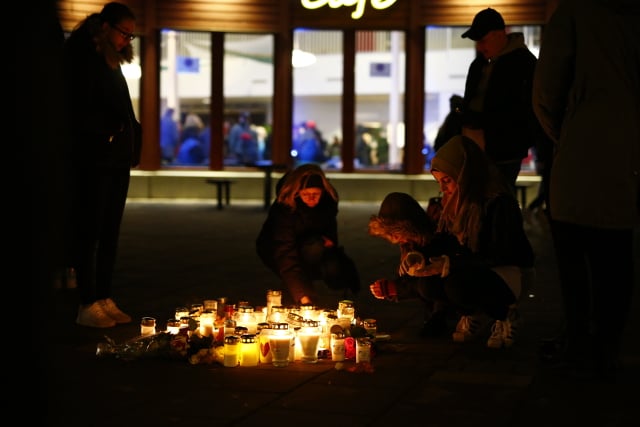It's two years since Anton Lundin went into the Kronan school in Trollhättan with a clear plan that he would die that day, but not alone. Fifteen minutes later, he is lying on the floor inside the school in a puddle of his own blood. Shot by the police. His plan has succeeded and he takes three other people with him in death.
The pain, sorrow and fury caused by Anton's actions is something Kronan and Trollhättan will have to live with. However, it is high time that we learn something from the incident. Because that which must not happen, happened. But it must never happen again! We owe it to the victims to be brave and seek a deeper understanding than we so far have done.
In order to actually learn something from the attack at Kronan, and in fact from all acts of violence, is that we do not take the easy way out and go for the first explanation we find.
Calling the Kronan incident racist is perfectly correct, but it does not help us. It does not explain Anton's choice to die and kill. Being fascinated by Vikings and regretting that “the immigrants take our jobs” does not kill people. I believe so many stick with the racist explanation as a defence mechanism. They protect themselves by creating a “them” – the racists – in relation to an “us”. We are not racists, therefore we are not to blame. We distance ourselves from Anton and his actions. But I would argue this is where we go wrong.
READ ALSO: 'We can't go out without our mums and dads now'
Anton's violence, when he had decided to kill through “suicide by cop”, was targeted at immigrants. And it's beyond all doubt that the political rhetoric at the time and those online forums he lived his life on helped him choose the target of his violence. So he sought out Kronan. But opinions do not explain who will commit acts of violence.
Anton's self-loathing formed the underlying reason behind the attack on Kronan. It was so strong that he felt he could not live. That is evident from a secret letter he wrote to a computer gaming friend online. This is where we find the explanation behind Anton's murders. Anton did not kill anyone because he was a convinced racist who was going to purify the nation. Anton killed because he hated himself and his life. We must therefore ask the question: why did he hate himself and his life to the point where he was ready to commit the ultimate act of violence?

Police cordons the day after the Trollhättan school attack on October 22nd 2015. Photo: Adam Ihse/TT
There's no need to speculate. There is research about violence and destructivity. The theoretical explanation is as simple as it is explanatory. Violence in, violence out. Someone who is the target of violence will also carry out violence. People who went to school with Anton testify that he was bullied in school. Being bullied is being exposed to violence, again and again without anybody stopping it. Being exposed to bullying could be likened to being exposed to torture. Being exposed to bullying is also the strongest contributing factor to why young men become school shooters, according to American research. They should know, if anyone!
We have to be self-critical and take responsibility for what happened to Anton in his life. As adults, we have a responsibility to act if we see and hear about children's vulnerability but we also have a responsibility to get politically involved for a society where children are not exposed to violence without adults acting. Can we say we have taken this responsibility? My answer to that question is no.
Note that I am not trying to defend Anton's actions. They were reprehensible and are to be condemned. What I want to prevent is that we, in the near future, will have to learn another name of a young man (because they are always men) whom we have chosen not to see but who eventually steps out of his shadow and into the historical narrative. Let us therefore be brave and self-critical. Let us from now on decide that all arenas in which there are children and young people living and developing should be free of violence. Homes, schools and leisure facilities. But just making that decision is not enough, lip service will not save us – we need to walk the talk!
This is The Local's translation of an opinion piece first published by GP. It was written by Marcus Svensson, equality strategist for Trollhättan municipality and expert on violence prevention.



 Please whitelist us to continue reading.
Please whitelist us to continue reading.